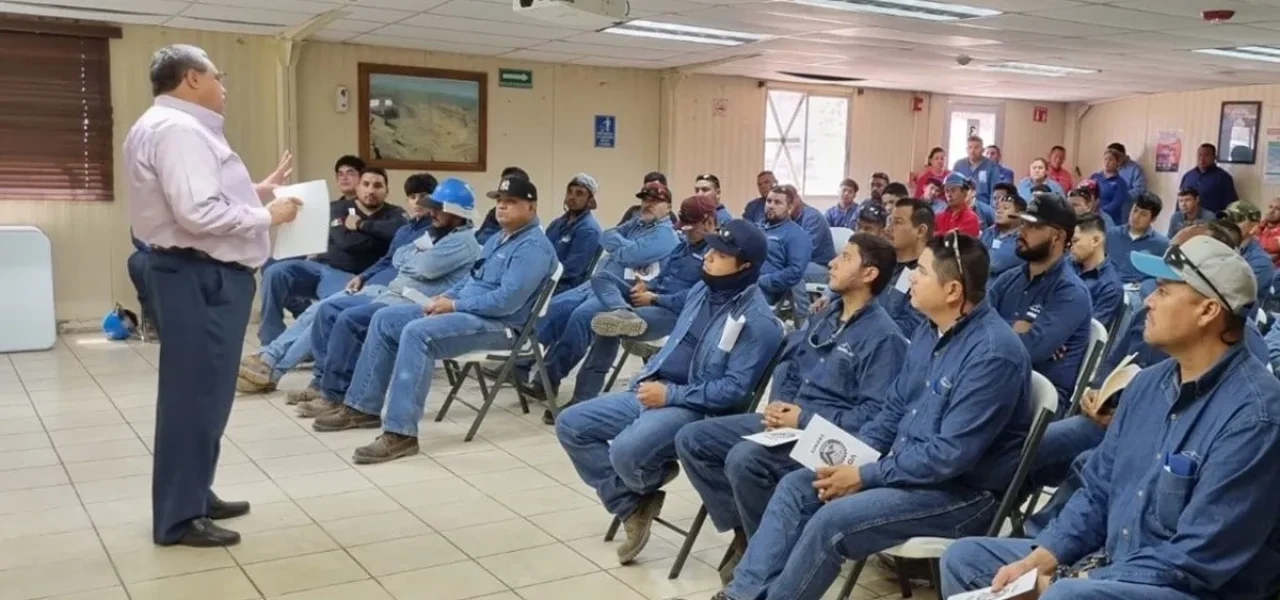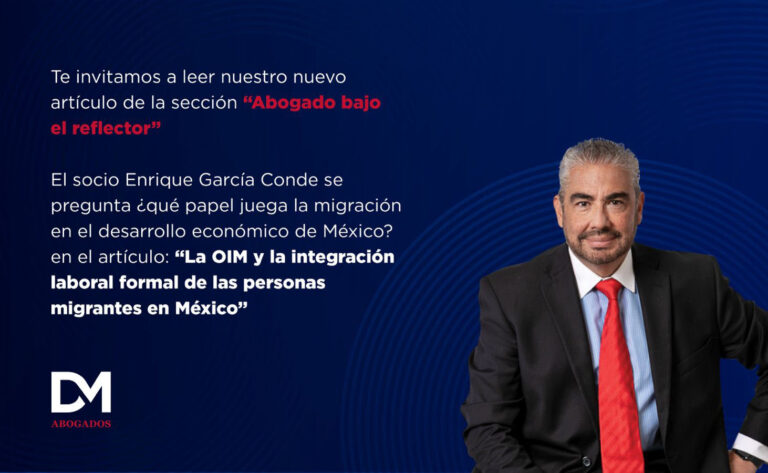What has been denominated as the Napo Law, approved by the Plenary of the Senate of the Republic to ensure financing of union organizations, revives corporativism and is a blow to the freedom of association of working people.
This Tuesday the first phase of the bill proposed by Senator Napoleón Gómez Urrutia moved forward, when the Senate of the Republic approved the proposal that considers that union dues hold a central place in the possibility of becoming effectively organized as workers, as the resources provided by the members are used for the operation, administration, and growth of their union, which translates into greater protection and labor benefits.
Nevertheless, Óscar de la Vega, Managing Partner of De la Vega & Martínez Rojas considers that the “Napo Law revives union corporativism and is a hard blow to the freedom of association of the workers. We cannot speak of freedom of association if the exclusionary clause for admission continues to exist, that is that a job applicant cannot get a job if he doesn’t join a union (Art. 395 of the LFT [Federal labor Law]) and now, with this reform bill that imposes the obligation of paying dues to the workers, even against their will, both provisions are contrary to Freedom of Association of the worker in accordance with the USMCA, the Constitutional reform and the Reform to the LFT.”
Deduction of union fees
The proposal that was sent to the House of Representatives eliminates the second paragraph of Section VI of Article 110 of the Federal Labor Law. With this, ordinary union fees provided for in the unions’ bylaws can be deducted from workers’ salaries.
With the trade agreement and the labor reform of 2019 it was allowed that working people could request from the employer that union fees were not deducted; this, according to the ruling approved by the Senate “caused an increase in the number of people with no affiliation, which resulted in the vulnerability of employees and caused their labor rights to be violated.
Germán de la Garza de Vecci, Managing Partner of Fisher & Phillips, explained that “this proposal, which should not progress through the House of Representatives, violates the rights of association and union freedom that each person has in terms of the international treaties of which Mexico is a party in ILO themselves. Therefore, there should not be any obligation for any person to pay a union fee that does not properly represent his interests.”
De la Garza added that “in this very sensitive electoral and political moment that we are living in the country, this circumstance only brings a benefit to union leaders that are close to the current administration on a very sensitive issue.”
For his part, Jaime Bustamante, representative at DeForest Abogados, said that “it must be noted that this prohibition of making deductions from the workers for this concept was only just established in the very recent reform of 2019. A Reform that was consistent with the dominant progressive visions in our country and in line with the principles of Union Freedom or Freedom of Association of workers, which are established in ILO Conventions 87 and 98, as well as the principles that have been strongly promoted by our commercial partners.”
“Strikeout and amendment” to the 2019 Labor Reform.
He explained that it would seem, anticipating the facts, that this new “strikeout and amendment” to the Federal Labor Law is more about taking care of the requests of aligned national union groups, but “it could go against the human rights or the freedom to associate or not associate to a union, going against international ILO Conventions or the Magna Carta itself.”




